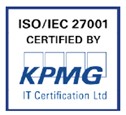Three New Market Court Decisions on Preliminary Injunctions in Patent Matters
8 May 2024
Author: Vilhelm Schröder
The Finnish Market Court issued three decisions at the end of March concerning preliminary injunctions based on patents. In two decisions the court rejected the applications for a preliminary injunction, while in one the preliminary injunction was granted.
The prerequisites for preliminary injunctions are found in Chapter 7 of the Code of Judicial Procedure. A general preliminary injunction under Section 3 of Chapter 7 of the Code of Judicial Procedure may be granted if the applicant can demonstrate that they have a right other than that referred to in Section 1 or 2 of Chapter 7, which is enforceable against the opposing party by a decision referred to in Section 2(1)(1)–(4) of Chapter 2 of the Enforcement Code claim (requirement), and that there is a danger that the opposing party by deed, action or negligence, or in some other manner hinders or undermines the realisation of the right of the applicant or essentially decreases its value or significance (danger requirement). When deciding whether to grant a preliminary injunction, the court must ensure that the opposing party does not suffer undue inconvenience in comparison to the benefit to be secured (balancing of interests).
Cases MAO:177/2024 and MAO:178/2024 involved the assessment of an inventive step and the concept of teaching away. In these cases, the same applicant companies demanded that the Market Court prohibit the opposing parties from offering or putting onto the market or importing or possessing its manufactured pharmaceutical product as long as the applicants’ European patent is valid under the threat of a fine of 500,000 euro.
In the case of preliminary injunctions based on patent infringements, the starting point for assessing validity in preliminary injunction matters has been the presumption of validity. However, validity is only a presumption, and it can be rebutted by presenting sufficient counterevidence. In its precedent KKO 2023:61, the Finnish Supreme Court specifically stated that in the case of patents, quite a strong presumption of validity is usually set as the starting point when considering whether to grant a preliminary injunction or not. If invalidity is invoked as a ground by the opposing party, they have to demonstrate why the invalidity of the patent-in-suit could not be considered likely.
In MAO:177/2024 and MAO:178/2024 the opposing parties were considered to have presented sufficient grounds to rebut the presumption of validity of the patent-in-suit. According to the Market Court, the patent-in-suit lacked the required inventiveness as the publications of the known level of technology would not have taught a person skilled in the art away from the solution according to the patent-in-suit and therefore the solution was to be considered obvious to a person skilled in the art. In addition, the Market Court noted that in the procedure of the Board of Appeal of the European Patent Office related to the patent-in-suit, several remarks from third parties had not been taken into account when the patent had been granted. The claim requirement, which is a prerequisite for preliminary injunctions, was not considered to have been met, and the Market Court rejected the applications for preliminary injunctions. The decisions are not final.
In case MAO:186/2024, the applicant companies demanded that the Market Court prohibit the opposing parties from offering, putting onto the market, and/or using pharmaceutical products on the basis of granted marketing authorisations and/or importing or possessing these products for these purposes as long as the applicants’ patent is valid under the threat of a fine of 500,000 euro.
In this case, the opposing parties were not considered to have rebutted the presumption of validity of the patent-in-suit. Both opposing and applicant parties presented divergent court decisions and expert opinions as support for their claims. The fact that the Board of Appeal of the European Patent Office had kept the patent in force, weighed for validity of the patent-in-suit. The Market Court also stated that the claims regarding the invalidity of the patent-in-suit were ambiguous and referred to the presumption of validity. In addition, the independent claims of the patent-in-suit were considered to be fulfilled in the opposing parties’ pharmaceutical products. Thus, the claim requirement was considered to have been met. In addition, the danger requirement was also met, and the opposing parties were not considered to suffer unreasonable harm in relation to the benefit to be secured. In the balancing of interests, the Market Court took into account the fact that the medicinal products of the opposing parties were not yet on the market and the applicant has a strict liability for the potential damages caused by the preliminary injunction. The Market Court considered the prerequisites for a preliminary injunction to be fulfilled and granted the preliminary injunction in accordance with the applicants’ claims. The decision is not final.






